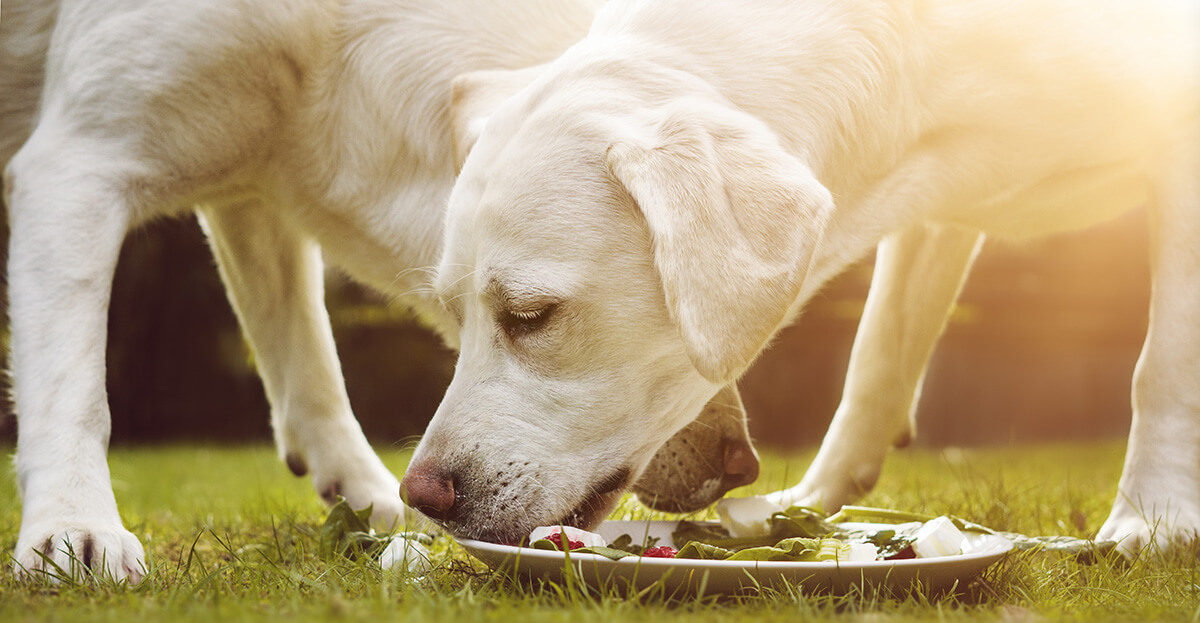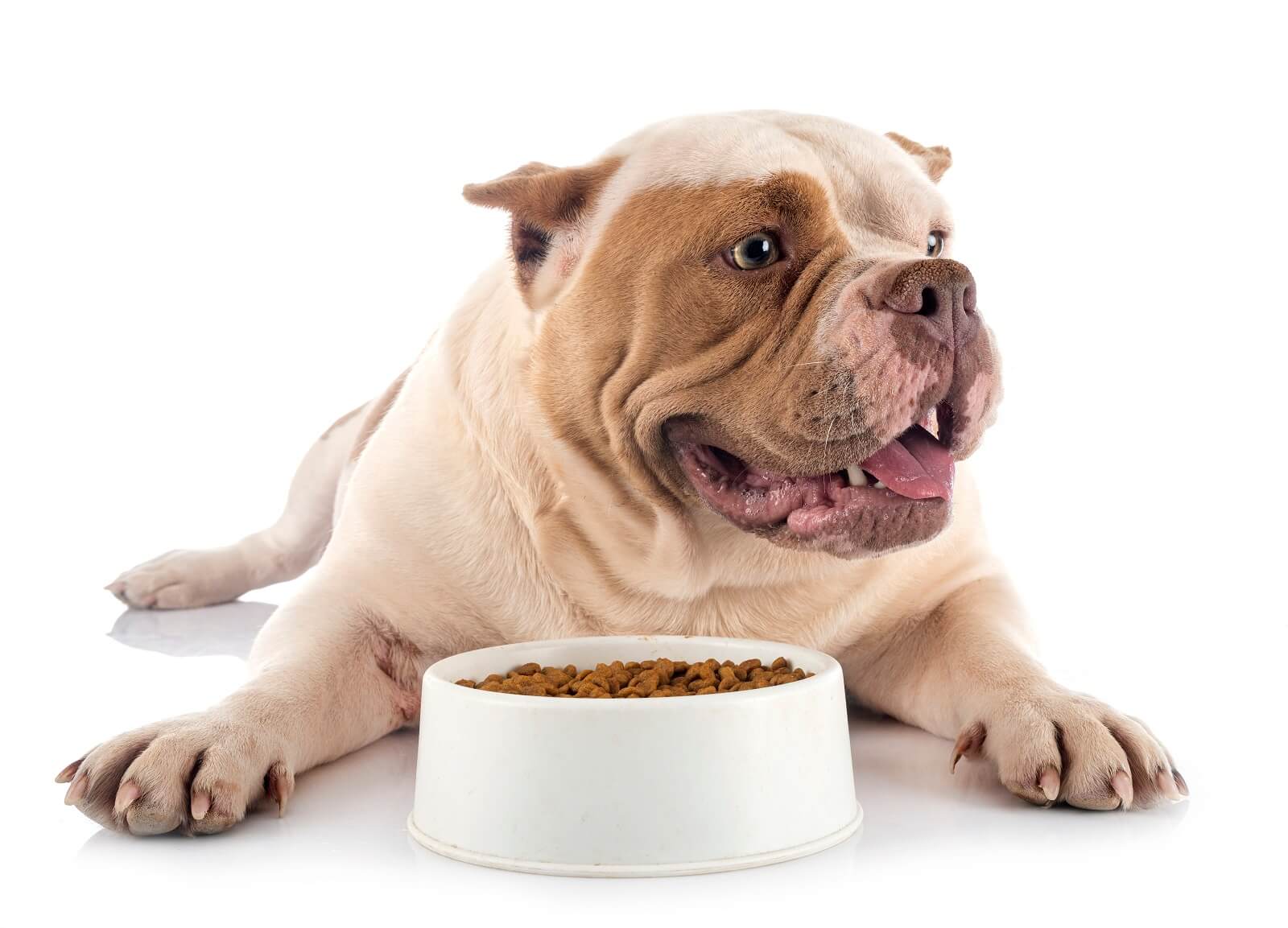Home>Health & Wellness>Nutrition & Diet>How To Make Your Dog’s Diet More Acidic


Nutrition & Diet
How To Make Your Dog’s Diet More Acidic
Published: January 28, 2024
Learn how to optimize your dog's nutrition and diet to make it more acidic. Discover expert tips and advice for a healthier canine diet.
(Many of the links in this article redirect to a specific reviewed product. Your purchase of these products through affiliate links helps to generate commission for Pawsomeoldies.com, at no extra cost. Learn more)
Table of Contents
Introduction
Ensuring your dog's diet is well-balanced and tailored to their specific nutritional needs is crucial for their overall health and well-being. One essential aspect of a dog's diet that often goes overlooked is the acidity level. Just like in humans, the pH balance in a dog's body plays a significant role in maintaining optimal health. An acidic diet for dogs can contribute to various health benefits, including improved digestion, enhanced nutrient absorption, and a strengthened immune system.
Understanding the impact of acidity in your dog's diet is vital for providing them with the best possible care. By incorporating the right foods and making informed dietary choices, you can help your furry companion thrive and lead a vibrant, active life. In the following sections, we will delve into the significance of an acidic diet for dogs, explore the foods that can increase acidity, and provide valuable tips for implementing and maintaining a balanced and acidic diet for your beloved canine companion.
Understanding the Importance of Acidic Diet for Dogs
The pH level, or acidity, of a dog's diet plays a crucial role in maintaining their overall health and well-being. Just like in humans, the balance of acidity and alkalinity in a dog's body is essential for various physiological functions. An acidic diet for dogs can positively impact their digestion, nutrient absorption, and immune system, ultimately contributing to their vitality and longevity.
Acidity in a dog's diet aids in the breakdown of proteins, making it easier for the body to absorb essential amino acids. This is particularly beneficial for dogs, as they are primarily carnivorous animals and require a substantial amount of protein in their diet. An acidic environment in the stomach promotes the activation of pepsin, an enzyme responsible for protein digestion, ensuring that the dietary proteins are effectively utilized by the body.
Furthermore, an acidic diet can help prevent the overgrowth of harmful bacteria in the digestive tract. By maintaining an optimal level of acidity, the stomach creates an environment that inhibits the proliferation of pathogenic microorganisms, reducing the risk of gastrointestinal infections and related health issues in dogs.
In addition to aiding digestion, an acidic diet can enhance the absorption of essential nutrients, such as calcium and iron, which are vital for maintaining strong bones and overall health. The acidic environment in the stomach facilitates the solubilization of minerals, allowing for efficient uptake by the body. This is particularly important for growing puppies and senior dogs, as they have specific nutritional requirements that can be better met through an acidic diet.
Moreover, an acidic diet can contribute to a robust immune system in dogs. The stomach's acidic environment serves as a primary line of defense against ingested pathogens, helping to prevent infections and illnesses. By maintaining an optimal level of acidity, the body is better equipped to ward off harmful bacteria and viruses, thereby supporting the overall health and well-being of dogs.
Understanding the importance of an acidic diet for dogs is fundamental to providing them with the best possible care. By recognizing the significant impact of acidity on their physiological functions, you can make informed dietary choices that promote their digestive health, nutrient absorption, and immune resilience. In the following sections, we will explore the specific foods that can be added to your dog's diet to increase acidity and provide valuable tips for implementing and maintaining a balanced and acidic diet for your beloved canine companion.
Foods to Add to Your Dog's Diet to Increase Acidity
When considering the incorporation of foods to increase acidity in your dog's diet, it's essential to focus on natural and wholesome options that align with their nutritional requirements. Including the following foods can effectively elevate the acidity level in your dog's digestive system, promoting optimal digestion, nutrient absorption, and overall well-being.
1. High-Quality Animal Protein
Introducing high-quality animal protein sources, such as lean meats like chicken and turkey, can contribute to an acidic environment in your dog's stomach. These protein sources are rich in amino acids and can aid in maintaining the necessary acidic pH for efficient protein digestion and nutrient absorption.
2. Organ Meats
Incorporating organ meats, such as liver and kidney, into your dog's diet can significantly enhance the acidity level. Organ meats are not only packed with essential nutrients but also contain natural enzymes that support the digestive process, helping to maintain an optimal pH balance in the stomach.
Read more: How To Add Enzymes To Your Dog’s Diet
3. Fermented Foods
Including fermented foods, such as plain yogurt and kefir, can introduce beneficial probiotics to your dog's diet. These probiotics promote a healthy gut environment, aiding in digestion and contributing to the maintenance of an acidic pH in the digestive tract.
4. Certain Fruits
While most fruits tend to have an alkalizing effect, there are exceptions that can support acidity in your dog's diet. Incorporating small amounts of cranberries and blueberries, which are naturally acidic fruits, can help in creating a favorable environment for digestion and nutrient absorption.
5. Supplements
Certain supplements, such as betaine hydrochloride (HCl), can be added to your dog's diet under the guidance of a veterinarian. HCl supplements can support the natural production of stomach acid, aiding in the maintenance of an optimal pH level for efficient digestion and nutrient utilization.
By incorporating these foods and supplements into your dog's diet, you can effectively increase the acidity level in their digestive system, promoting enhanced digestion, nutrient absorption, and overall health. It's important to introduce these additions gradually and ensure they align with your dog's specific dietary needs and any existing health conditions. Consulting with a veterinarian to tailor your dog's diet to their individual requirements is always recommended to ensure their well-being and vitality.
Foods to Avoid in Your Dog's Diet to Maintain Acidity
Maintaining the appropriate level of acidity in your dog's diet is essential for supporting their digestive health and overall well-being. In addition to incorporating foods that promote acidity, it's equally important to be mindful of items that can disrupt the pH balance and contribute to alkalinity in your dog's digestive system. By avoiding certain foods, you can help sustain the optimal acidic environment necessary for efficient digestion and nutrient absorption in your canine companion.
Read more: How To Make Healthy Dog Food For Allergies
1. Grains and Starchy Foods
Grains and starchy foods, such as wheat, corn, and rice, can have an alkalizing effect on your dog's digestive system. These ingredients are often used as fillers in commercial dog foods and may contribute to a less acidic environment in the stomach. Limiting the inclusion of these ingredients in your dog's diet can help maintain the desired level of acidity for optimal digestion.
2. Highly Processed Treats
Many commercially available dog treats contain high levels of carbohydrates, sugars, and artificial additives, which can disrupt the natural pH balance in your dog's digestive tract. Opting for natural, low-carbohydrate treats or offering small portions of acidic fruits, such as cranberries, as occasional treats can help avoid the alkalizing effects of processed options.
3. Excessive Dairy Products
While small amounts of fermented dairy products, such as plain yogurt and kefir, can contribute to a healthy gut environment, excessive consumption of conventional dairy products may lead to alkalinity in your dog's digestive system. Limiting the intake of conventional dairy, such as cheese and milk, can help maintain the desired level of acidity for efficient digestion.
4. Alkaline Vegetables
Certain vegetables, including potatoes, sweet potatoes, and peas, have the potential to increase alkalinity in your dog's diet. These vegetables are commonly used in commercial dog foods and may impact the overall pH balance in the digestive system. Moderating the inclusion of these alkaline vegetables can support the maintenance of an optimal acidic environment for improved digestion and nutrient absorption.
Read more: What Company Makes Science Diet Dog Food
5. Overly Processed Foods
Highly processed and artificial foods, including those containing excessive preservatives, colorants, and flavor enhancers, can disrupt the natural acidity in your dog's digestive system. Opting for minimally processed, natural food options and carefully reading ingredient labels can help avoid the potential alkalizing effects of heavily processed foods.
By being mindful of the foods to avoid in your dog's diet to maintain acidity, you can contribute to their digestive health and overall well-being. Making informed dietary choices and prioritizing natural, wholesome ingredients can help sustain the optimal pH balance in your dog's digestive system, supporting efficient digestion, nutrient absorption, and a vibrant, active life. Always consult with a veterinarian to ensure that your dog's dietary plan aligns with their specific nutritional needs and health status, further promoting their long-term health and vitality.
Tips for Implementing an Acidic Diet for Your Dog
Implementing an acidic diet for your dog requires thoughtful consideration and a gradual transition to ensure their digestive system adapts effectively. Here are essential tips to guide you through the process:
-
Gradual Transition: When introducing acidic foods into your dog's diet, it's crucial to do so gradually. Sudden dietary changes can lead to digestive upset. Start by incorporating small portions of acidic foods, such as lean meats and fermented options, while monitoring your dog's response.
-
Consult with a Veterinarian: Before making significant changes to your dog's diet, consult with a veterinarian. They can provide valuable insights tailored to your dog's specific nutritional needs, existing health conditions, and any potential dietary sensitivities.
-
Balanced Approach: While increasing acidity is beneficial, it's essential to maintain a balanced diet. Ensure that your dog's meals encompass a variety of nutrients, including proteins, fats, carbohydrates, vitamins, and minerals, to support their overall health and well-being.
-
Hydration: Adequate hydration is key to supporting your dog's digestive processes. Ensure that fresh, clean water is readily available for your dog at all times. Proper hydration aids in maintaining the ideal pH balance in the digestive system.
-
Observation and Adjustment: Monitor your dog's response to the dietary changes closely. Observe their energy levels, coat condition, and overall demeanor. Based on their individual response, make necessary adjustments to the acidic components in their diet.
-
Regular Exercise: Incorporating regular exercise into your dog's routine complements their dietary plan. Physical activity supports overall health and can contribute to a balanced digestive system, enhancing the benefits of an acidic diet.
-
Routine Health Check-ups: Schedule regular veterinary check-ups to assess your dog's overall health and the impact of the dietary changes. This allows for proactive adjustments and ensures that your dog's diet aligns with their evolving nutritional requirements.
By implementing these tips, you can effectively transition your dog to an acidic diet while prioritizing their well-being and long-term health. A thoughtful and gradual approach, combined with professional guidance, supports the successful integration of an acidic diet into your dog's lifestyle, promoting their vitality and overall quality of life.
Potential Health Benefits of an Acidic Diet for Dogs
Implementing an acidic diet for dogs can yield a myriad of potential health benefits, contributing to their overall well-being and vitality. By maintaining an optimal pH balance in the digestive system, an acidic diet can positively impact various aspects of a dog's health, encompassing digestion, nutrient absorption, and immune resilience.
One of the primary health benefits of an acidic diet for dogs is its role in promoting efficient digestion. The acidic environment in the stomach supports the activation of digestive enzymes, facilitating the breakdown of proteins and aiding in the overall digestion process. This, in turn, can help prevent digestive discomfort and enhance nutrient utilization, ensuring that the dietary components are effectively processed and absorbed by the body.
Furthermore, an acidic diet can contribute to improved nutrient absorption, particularly essential minerals such as calcium and iron. By creating an optimal pH environment in the digestive tract, an acidic diet supports the solubilization of minerals, enhancing their uptake by the body. This is particularly beneficial for growing puppies and senior dogs, as it aids in maintaining strong bones, overall health, and vitality.
In addition to supporting digestion and nutrient absorption, an acidic diet can bolster a dog's immune system. The acidic environment in the stomach serves as a natural defense mechanism against ingested pathogens, helping to prevent gastrointestinal infections and related health issues. By maintaining an optimal level of acidity, the body is better equipped to fend off harmful bacteria and viruses, ultimately supporting the overall health and well-being of dogs.
Moreover, an acidic diet can contribute to the maintenance of a healthy gut microbiome. By promoting an acidic environment, beneficial gut bacteria are supported, aiding in the balance of the microbiota and overall gut health. This can have far-reaching effects on a dog's well-being, as a healthy gut microbiome is linked to improved digestion, nutrient absorption, and immune function.
Overall, the potential health benefits of an acidic diet for dogs encompass improved digestion, enhanced nutrient absorption, strengthened immune resilience, and the promotion of a healthy gut microbiome. By prioritizing the maintenance of an optimal pH balance in the digestive system, an acidic diet can significantly contribute to the overall health, vitality, and longevity of canine companions.
Conclusion
In conclusion, the significance of maintaining an optimal level of acidity in a dog's diet cannot be overstated. By understanding the impact of acidity on a dog's physiological functions, pet owners can make informed dietary choices that promote digestive health, nutrient absorption, and immune resilience. The incorporation of specific foods, such as high-quality animal proteins, organ meats, fermented options, and acidic fruits, can effectively elevate the acidity level in a dog's digestive system, contributing to improved overall well-being.
Furthermore, being mindful of the foods to avoid, including grains, highly processed treats, excessive dairy products, alkaline vegetables, and overly processed foods, is essential for sustaining the desired level of acidity. By prioritizing natural, wholesome ingredients and avoiding items that can disrupt the pH balance, pet owners can support efficient digestion, nutrient absorption, and a vibrant, active life for their canine companions.
Implementing an acidic diet for dogs requires a thoughtful and gradual approach, with a focus on balanced nutrition, hydration, regular exercise, and routine health check-ups. By following essential tips and seeking professional guidance, pet owners can successfully transition their dogs to an acidic diet while prioritizing their well-being and long-term health.
The potential health benefits of an acidic diet for dogs encompass improved digestion, enhanced nutrient absorption, strengthened immune resilience, and the promotion of a healthy gut microbiome. By maintaining an optimal pH balance in the digestive system, an acidic diet can significantly contribute to the overall health, vitality, and longevity of canine companions.
In essence, by recognizing the importance of acidity in a dog's diet and making informed dietary choices, pet owners can play a pivotal role in supporting their furry companions' digestive health and overall well-being. Through a balanced and acidic diet, dogs can thrive and lead vibrant, active lives, enriching the bond between pets and their devoted owners.












